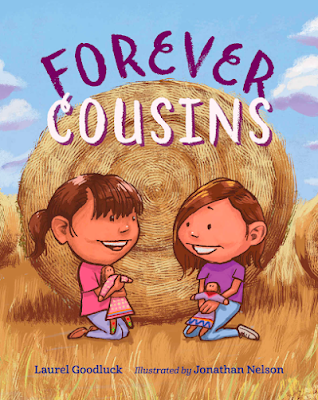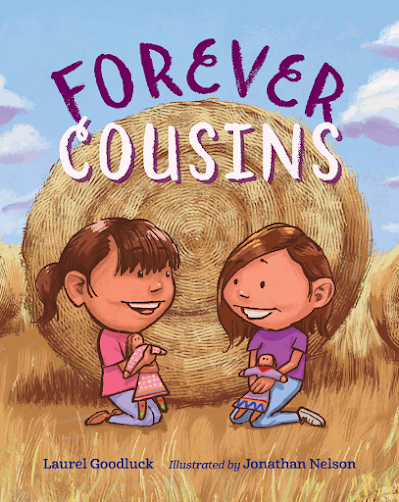- Home
- About AICL
- Contact
- Search
- Best Books
- Native Nonfiction
- Historical Fiction
- Subscribe
- "Not Recommended" books
- Who links to AICL?
- Are we "people of color"?
- Beta Readers
- Timeline: Foul Among the Good
- Photo Gallery: Native Writers & Illustrators
- Problematic Phrases
- Mexican American Studies
- Lecture/Workshop Fees
- Revised and Withdrawn
- Books that Reference Racist Classics
- The Red X on Book Covers
- Tips for Teachers: Developing Instructional Materials about American Indians
- Native? Or, not? A Resource List
- Resources: Boarding and Residential Schools
- Milestones: Indigenous Peoples in Children's Literature
- Banning of Native Voices/Books
- Debbie on Social Media
- 2024 American Indian Literature Award Medal Acceptance Speeches
- Native Removals in 2025 by US Government
Monday, February 03, 2025
2024 American Indian Literature Award Medal Acceptance: Jonathan Nelson
Friday, January 31, 2025
2024 American Indian Literature Award Medal Acceptance: Laurel Goodluck
- My storytelling journey began with my family around the kitchen table in the SF Bay Area in California on weekends with my parents, uncles, aunties, grandmas, and cousins. The grown-ups told us stories of their adventures as children growing up in our homelands in North Dakota and Alaska. Stories of brown bears, gathering cedar bark, their father singing lullabies in Hidatsa and playing Stardust on the Sax, and trading horses for bikes with the town kids in Elbowoods.
- As cousins, these stories were adventures that we wanted to live up to. So, when we ventured home to North Dakota each summer, we were determined to have similar escapades and did. We jumped off logs in the lake, and when wild ponies wandered on our farm, we corralled them and played rodeo; we found rattlesnakes in the garden, and in solemn moments, we gathered around the tipi rings dotting the land and imagined our ancestors’ lives on the prairie.
- But the stories that were told around the kitchen table that later informed all of us cousins as adults were the stories about our chiefs and my grandfather, who was tribal chairman of Fort Berthold. My grandfather, Martin Old Dog Cross, bravely fought against the government to stop the Garrison Dam, which eventually flooded our ancestral lands. Martin would meet with Senators in Washington DC and proclaim, “There is no price for our land.”
- With this legacy of leadership through oral storytelling, I learned that these powerful stories offered keys to resilience. So, with a career in education and mental health and near retirement, I decided to write for children. I wanted to provide all the kids with what my family offered me through oral storytelling.
- It is a story of my family and many families who experienced the Indian Relocation Act. Who knew a picture book format could offer all of this? I didn’t initially; this was my first attempt at a picture book. I soon discovered I could tell a universal story of love and friendship between cousins with all the beauty of our Native culture sprinkled through the story as organically as we live. And the back matter, the author’s note could express my need to tell the untold history and tribal and native cultural relevance. It also began with a lovely team of allies.
- I found Debbie Reese on social media. I Instant Messaged her and asked her many questions. She directed me to Tracy Sorell, who spent over an hour on the phone with me, passing on her wisdom. Later, Traci and I were paired together as mentors and mentees through WNDB (We Need Diverse Books), and everything began to change.
- Tracy introduced me to freelance editor Karen Boss, who was patient and professional and helped me edit Forever Cousins. Then she said, “I don’t say this to everyone; I’d like you to submit this to Charlesbridge.”
- At the same time, I met Nicole Geiger, agent extraordinaire with Full Circle Literary Agency. I knew I wanted to be with this agency, which supported diverse creatives in children’s literature for decades.
- My community expanded through the Kweli Children of Color Conference with Laura Pegram’s leadership, Native writing intensives sponsored by Heartdrum and WNDB with editor Rosemary Brosnan and Cynthia Leitich Smith, Highlights Native retreats with Tracy Sorell, and international online Native writing critique groups. We are a solid Native community of support and a soft nest to retreat to.
- So, Forever Cousins was created with this circle of support and belief. And with a talented illustrator, Jonathan Nelson, who made the beautiful, vibrant, and playful art. I will forever be grateful to these allies and the community we continue to grow and nurture with many unique tribal voices and needed stories.
- Thank you, American Indian Library Association, for this honor of best picture book, which I’m thrilled to share with Kim Rogers and her brilliant story.
- And last, I thank my family, who offered stories that run as deep as the tipi rings still outlined on our prairie.
Friday, November 11, 2022
Ku'daa, University of New Mexico Native Alumni Chapter!
Good evening.
This morning, Native people from across the country were gathering in Washington DC or online to listen to the Supreme Court oral arguments in Brackeen v Haaland.
I’m living in the San Francisco Bay area right now. Wherever I am, I talk about kids and books. or more precisely, the ways that stories in books tell others who we are. That work is why I can’t be with you tonight. I’m in the midst of working with teachers in this area.
I tell teachers and librarians that our status as sovereign native nations has been left out of popular, classic, and award winning books. Those books shape what people know about us. They shape what the Brackeen’s know about us. Those books are part of why the Indian Child Welfare Act is at risk, right now.
Those books are a threat to our sovereignty.
I’m grateful to UNM’s Native American Alumni Chapter for selecting me to receive this award. It acknowledges the importance of the work I do to help educators understand what is wrong with those popular and award-winning books.
And it acknowledges the work I do to bring visibility to Native writers who are creating books that affirm who we are.
In October, an absolutely terrific picture book by two Native people came out. That book is Forever Cousins. Written by Laurel Goodluck and illustrated by Jonathan Nelson, it is about cousins growing up together in the Bay Area.
In the Author’s Note, Goodluck writes about the Indian Relocation Act. It is why she grew up in the Bay Area. She also writes about sovereignty!
I talked about Forever Cousins in a workshop I did earlier this week. After the workshop, one of the participants approached me. She was deeply touched by Goodluck’s book. She is from Tesuque Pueblo, and like Laurel, grew up in the Bay Area.
Forever Cousins is one book, but it sits amongst a growing number of books by Native writers and illustrators who are creating books that should be in every classroom, and every library.
Like many of you, I’m deeply worried about Brackeen v. Haaland, and, I am confident that as we continue to raise our voices and use books by Native writers, we are disrupting the harms done by older classics that misrepresent who we are. Buy books by Native writers, and talk about them to everyone you know. Help me to bring visibility to books that lift our children and our nations.
Ku’daa.
I offer my congratulations to Nicolle Gonzales. She, too, was honored by the Native Alumni chapter. She founded the Changing Woman Initiative. Here's a video of her:
Monday, October 10, 2022
Highly Recommended: FOREVER COUSINS written by Laurel Goodluck; illustrated by Jonathan Nelson
As a matter of fact, we are dual citizens: first enrolled members of sovereign Tribal Nations and then citizens of the United States. The term "sovereign nation" means a Tribal Nation that governs itself. If it is federally recognized, then it has a governmental relationship with the United States as a nation with a nation.
In actuality, the federal government wanted to erase Native culture by moving Native people to cities so they would adapt to the lifestyles of white people.
The treatment of Native Americans in the United States was and sometimes still is despicable. But as with the family in this story and with my own family, unjust experiences forge tight bonds between us and make us strong. Our resiliency is rooted in our ceremonies and culture. We have a deep love of home. The land reminds us of our ancestors, storytelling helps us make good decisions, and we continue to have love and loyal family connections that are unbreakable.
Forever Cousins is tribally specific. Both, the author and illustrator, are Native. The story is set in the present day. It can--and should be--read year-round (not confined to a heritage month or day). It is getting a 'highly recommended' label from me, but my enthusiasm for the book is much more than a 'highly recommended' label conveys. With this story and the note, Goodluck and Nelson give teachers or parents information that they can carry with them when they close this book and choose another one that features Native people. They see us as people who live in a city or on a reservation. They can see us as people whose identities and lives as Native people are central to who we are, and who share the same sorts of joys and fears that kids of other cultures do, too.







